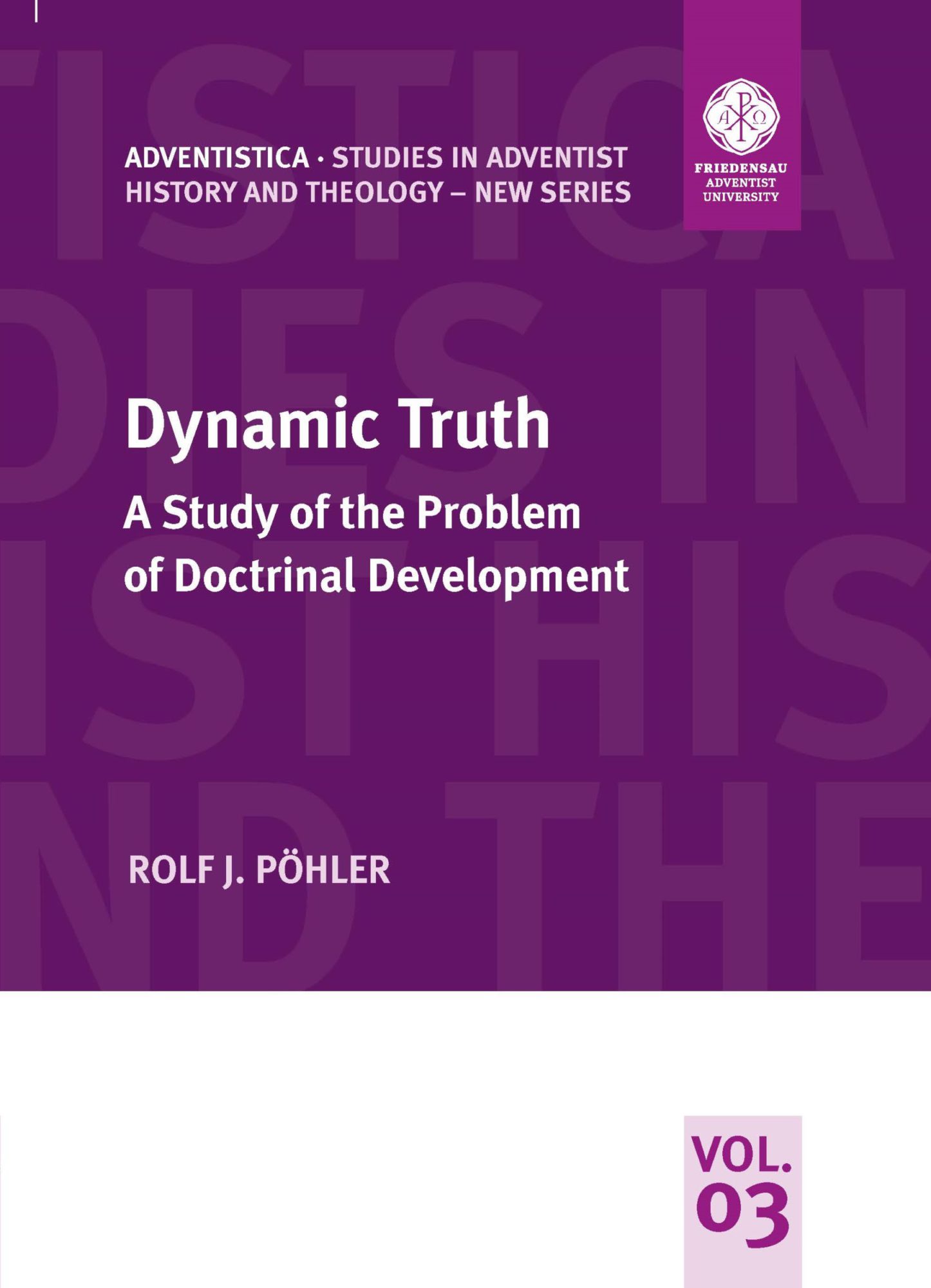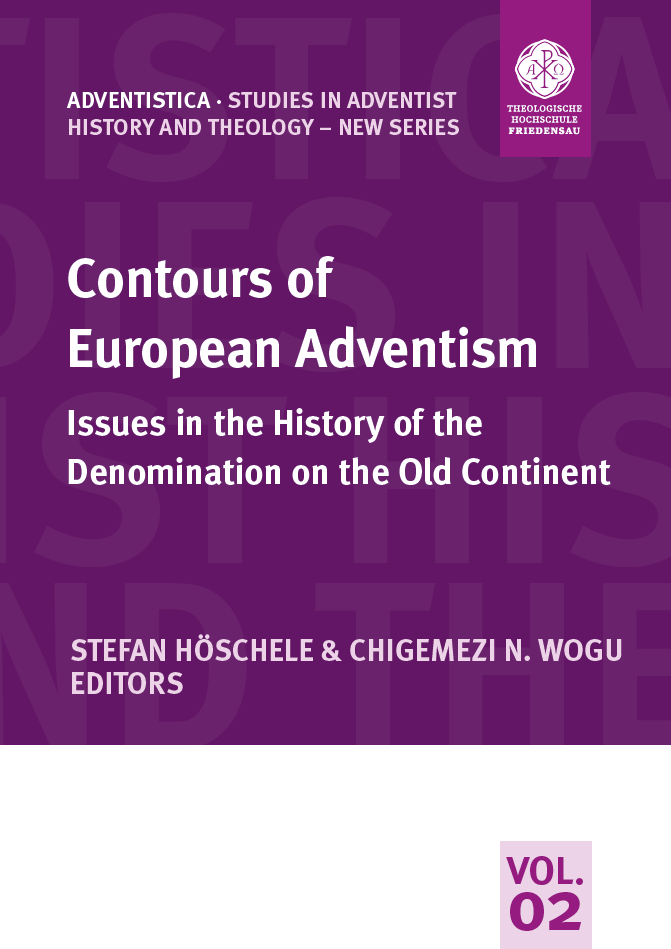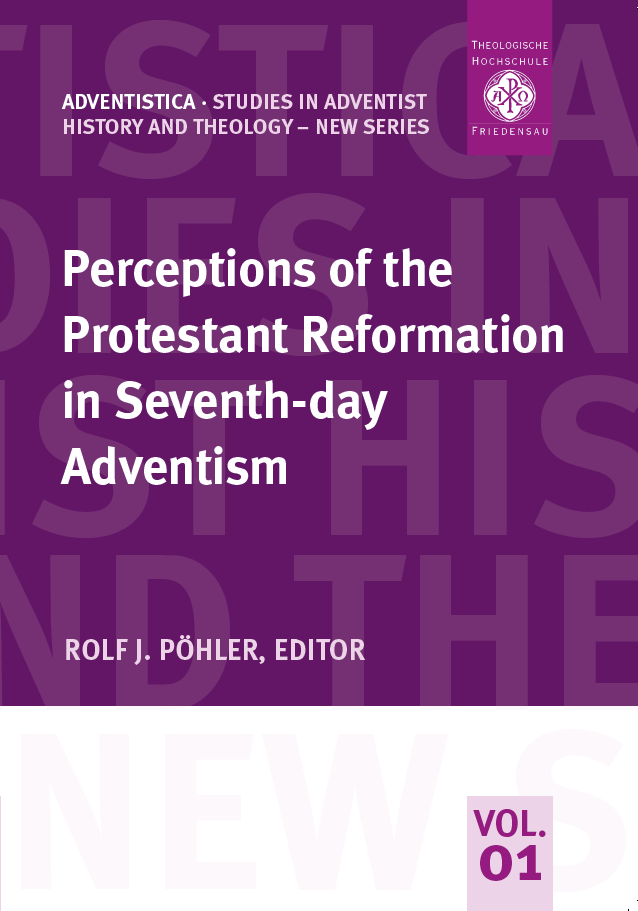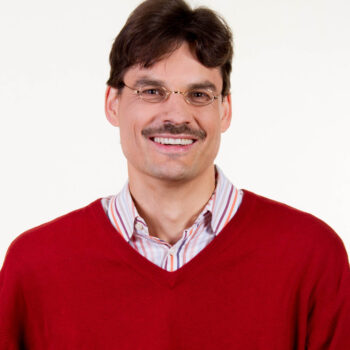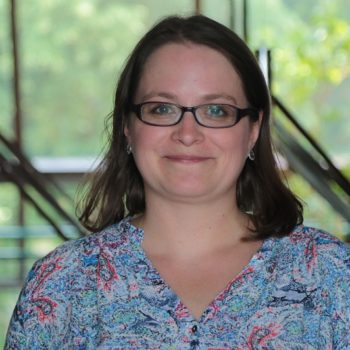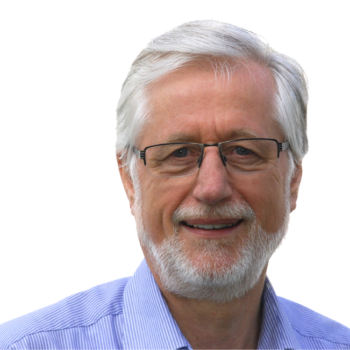Institute of Adventist Studies
The Institute of Adventist Studies (IAS) was established by Friedensau Adventist University (FAU). It cooperates closely with the Historical Archive of the Seventh-day Adventist Church in Europe. It is attached to the departments of Systematic Theology and Historical Theology in the School of Theology.
The Institute fosters activities of research and teaching, particularly in the following areas:
- research and publication in Adventist Studies at FAU
- organization of scholarly conferences about research on Adventism
- cooperation with scholars from other universities and institutions
- services to the Seventh-day Adventist Church in Germany, Europe, and beyond
- further development of the Historical Archives of the SDA Church in Europe
- creation of an international network for Adventist Studies
- development of academic programs and course offerings
The Institute of Adventist Studies of FAU is committed to the historical and denominational study of Adventism and its related currents. It is the only scholarly institution of this kind in Europe.
Newsletter
For regular information please subscribe for the newsletter of the Institute of Adventist Studies.
Subscribe to NewsletterAmong the members of the Institute there are professors, lecturers, and research assistants, and in special cases, pastors and other members of the Seventh-day Adventist Church as well as other persons engaged in Adventist Studies.
Applications for membership should be addressed to Stefan Höschele, the current director of the institute: .
General inquiries can be sent by e-mail to the Institute e-mail address: .
Projects
The IAS pools the research interests of its members and welcomes suggestions regarding other themes of research.
The following projects were run within the framework of the institute:
- Encyclopedia of Seventh-day Adventists (Inter-European and Euro-Asia regions)
- Bibliography: Adventism in Europe (by J. Stefánsson and E. Jean)
Symposia
Every two years the IAS organizes symposia dealing with historical and systematic issues of Adventist theology. (The 2020 symposium was postponed due to the Corona pandemic.)
For details of the next symposium, April 27 to 30, 2026, and the CALL FOR PAPERS, see below or download.
 2026: Adventist Studies: State of the Art and the Things to Come
2026: Adventist Studies: State of the Art and the Things to Come
Call for Papers
Adventist Studies: State of the Art and the Things to Come
Symposium, ThH Friedensau, April 27–30 (online)
Further details, times and zoom link to be communicated.
The field of Adventist Studies has come a long way. Recent milestones – such as the Oxford Handbook of Seventh-day Adventism, the online Encyclopedia of Seventh-day Adventists, and two volumes of Ellen White’s annotated early manuscripts and letters – indicate the discipline’s maturity and diversity. Scholarly discourse on Adventist origins, variegated development, and global denominational presence is thriving.
This symposium aims to chart future directions by evaluating achievements and breakthroughs as well as discussing challenges and desiderata in the field and its research practices. Some of the possible themes are:
[A. History] (1) The future of Ellen White studies, (2) The study of regional Adventisms, including decolonial perspectives, (3) Researching dynamics of SDA migration and denominational globalization, (4) Reflections on Adventist historiography.
[B. Theology] (5) Approaches to contextual Adventist theology, (6) Adventist biblical studies?, (7) Investigating Adventist moral traditions and ethics.
[C. Frameworks] (8) Comparative methods in studying adventistic movements throughout religious history, (9) The social sciences and empirical studies in Adventist phenomena, (10) “Adventist epistemology” in Adventist Studies?, (11) The study of popular Adventisms, (12) Researching women and Adventism, (13) Digital humanities and Adventist research.
[D. Past, Present, and Future] (13) Classics in Adventist Studies and what we can learn from them, (14) Past and potential breakthroughs, (15) Adventist Studies as ministry to the church, (16) Blind spots of the discipline so far.
You are invited to submit a topic and an abstract by November 15, 2025. Contributions should focus on methodology, theoretical framework, research philosophy, scholarly practices, and other foundational aspects of the field. Symposium participants will be scholars of various backgrounds as well as teachers, pastors, church administrators, archivists, and individuals who are interested in the field of Adventist Studies. Symposium presentations will be published as part of the IAS series.
Institute of Adventist Studies (IAS), Friedensau Adventist University
Stefan Höschele, Ph.D., & Bernd Müller, Ph.D.
 2024: Adventism and the Anabaptists
2024: Adventism and the Anabaptists
Symposium background: On the evening of January 21, 1525, Konrad Grebel baptised the former Roman Catholic priest Jörg Blaurock, who had asked him to do so, in Zollikon, near Zurich. Blaurock then baptised others among their friends. With this act, a first independent congregation was constituted which detached itself from the Zurich Reformation. To this day, January 21, 1525, is considered the founding date of a movement that has been pejoratively named the “Wiedertäufer” (Anabaptist) movement by its opponents. Since the 20th century, it has also been called the Radical Reformation or the “left wing” of the Reformation. Yet these names can only inadequately reflect the breadth and diversity of interests of the movement. The core concern was the longing for a comprehensive Reformation, which was dominated by four emphases: (1) consistent discipleship, (2) the Holy Scriptures as the indispensable standard for faith and life, (3) the priesthood of all believers, and (4) the separation of church and state power. This often led to strict non-violence, withdrawal from the world and strong eschatological expectations. Faith baptism marked membership in the movement.
The Anabaptists did not represent a homogeneous revival movement within the 16th century Reformation and was not limited to Switzerland and Southern Germany. The radical demands prominent among them, i.e. church-state separation and the personal decision for the faith by each Christian, represented a significant intellectual-historical background for the Reformation which had been initiated by Martin Luther and Huldrych Zwingli. For various reasons, however, these two categorically rejected the claims of the Anabaptist movement, and even demanded and supported their persecution by the authorities. As early as 1527, the Anabaptist leader Felix Manz was drowned in the Limmat river of Zurich, and Michael Sattler was burned in Rottenburg am Neckar. Two years later, in 1529, the Diet of Speyer passed the so-called “Anabaptists Mandate” with the consenting votes of the Protestant princes. This resolution stipulated that all those who practised faith baptism and those who did not have their children baptised were to be sentenced to death. Although the mandate was not implemented in the same manner everywhere, many Anabaptists lost their lives because of their faith.
Even though today there are only a few major groups that directly trace their history back to the Anabaptist movement (the Mennonites, the Amish, and a few others), influences of this movement can be found in many ways in the creeds and church order of contemporary denominations. In preparing for the 500th anniversary of the Anabaptist movement in 1525, Friedensau Adventist University invited the public you to an international symposium that explored various aspects and vestiges of the Anabaptist movement in Adventism and beyond.
 2021: The Kingdom of God is at Hand – Adventist Interpretations of Biblical Apocalyptic
2021: The Kingdom of God is at Hand – Adventist Interpretations of Biblical Apocalyptic
The fourth symposium of the Institute of Adventist Studies at FAU aimed at deliberating the variety, continuities, and distinct emphases in Adventist interpretations of biblical apocalyptic. Beyond Daniel and Revelation, what have been the roles of other biblical passages of this genre (e. g., in Zechariah, Ezekiel, Paul, and Peter)? What impact, if any, did the Methodist, Baptist, and Christian Connection backgrounds of the founders have on their particular “apocalyptic accent”? Which themes were stressed in earlier periods, and which received attention in later generations? How should the denominational spectrum of hermeneutical and interpretative traditions with regard to apocalyptic materials be assessed? How have Adventists handled key themes such as theodicy and judgment, the nearness and “delay” of the parousia, and consequences of apocalyptic eschatology for mission and ministry? What impact has the apocalyptic orientation had for members’ anticipation and angst regarding future events, and for their life in but not of the world?
By observing and pondering Adventist discourses in the various realms touched by apocalyptic beliefs and thought, symposium participants aimed both at critically analyzing and at gaining a fresh appreciation for a contested, but crucial element of Christian theology and salvation history – the expectation that “the Kingdom of God is at hand.”
The program featured seventeen scholarly papers. Here you can find a list of all presenters (including working titles).
The proceedings will be published in the IAS series Adventistica. Watch out for news.
 2018: Contours of European Adventism
2018: Contours of European Adventism
Download: Complete e-book (PDF):
Höschele & Wogu 2020: Contours of European Adventism
Is there such a thing as "European Adventism"? What are its most important contributions to worldwide Adventism? These were some of the questions discussed at the symposium "Contours of European Adventism" organized by the Institute of Adventist Studies. From 23 to 26 April 2018, the participants of the symposium heard 21 lectures by Adventists from many European and non-European countries. The presentations reflected historical, theological, empirical or sociological perspectives and dealt with the problems of past and present generations of Adventists in Europe
The presentations have been published; the book can be ordered here via Amazon or here via BOD, with cheaper shipment in many countries (Contours of European Adventism: Issues in the History of the Denomination on the Old Continent. Ed. by Stefan Höschele und Chigemezi N. Wogu).
If you are interested in IAS publications, you can subscribe to the IAS Newsletter. All you need to do is send an e-mail to: .
Symposium reports:
Book chapter with color graph:
 2016: Perceptions of the Protestant Reformation in Seventh-day Adventism
2016: Perceptions of the Protestant Reformation in Seventh-day Adventism
Are Seventh-day Adventists “heirs of the Protestant Reformation”? How did early Seventh-day Adventists perceive the Protestant Reformation? Which theological lines connect Luther, Melanchthon, Zwingli, and the Seventh-day Adventist Church? These and other issues were discussed on the Second International Symposium of the Institute of Adventist Studies of FAU, May 9-12, 2016. The Symposium consisted of 18 scholarly lectures held by national and international researchers. In the first part, the focus was on the Protestant Reformation as an overall movement, and then, in a more specialized part, on the tradition of the Anabaptists, the so-called “left wing” of the Protestant Reformation.
In a constructive atmosphere, ideas could be exchanged, and perspectives widened. The Symposium came to an end with an excursion to Lutherstadt Wittenberg. In 2018, an anthology of the scholarly lectures was published in the series "Adventistica" by FAU.
Reports:
 2014: The Impact of World War I on Seventh-day Adventism
2014: The Impact of World War I on Seventh-day Adventism
The Institute for Adventist Studies of FAU organized its first International Symposium on May 12-15, 2014. Approximately 90 speakers, auditors, and students attended the Symposium with the theme “The Impact of World War I on Seventh-day Adventism”. After listening to the lectures held by 19 speakers, amongst others, the church historian George Knight (USA), there were discussions with questions and answers on the respective topics.
The event was structured by three thematic blocks: the interpretation of prophetic texts on the expected fall of the Ottoman Empire (Turkey), the military service of Seventh-day Adventists (also on Sabbath) in countries involved in World War I, and the origin of the Seventh-day Adventist Reform Movement in 1915 in reaction to the Church's position towards this issue.
The highlight of this Symposium was the discussion with some leading representatives of the Seventh-day Adventist Reform Movement on Wednesday evening. There had already been a discussion with representatives of the Seventh-day Adventist Reform Movement in Friedensau in 1920, which should be repeated in 2014. There was an open exchange of views in a fraternal atmosphere, which aroused the desire for further discussions on the basis of an historical study of sources and a dialog without apologetics/polemics.
The conference organized by Prof. Dr. Rolf J. Pöhler came to an end on Thursday with an excursion to Lutherstadt Wittenberg in the afternoon and a concert of the world-famous conductor Herbert Blomstedt at the Gewandhaus Leipzig in the evening.
A compilation of the scholarly lectures as an anthology is currently in progress and planned for spring 2019. If you are interested in publications of IAS, you can subscribe to the newsletter of IAS. Just send an e-mail to: ">.
Reports:
Publications
The current series "Adventistica – New Series" can be ordered from Books-On-Demand.
Newsletter
Newsletter School of Theology No. 18
Newsletter School of Theology No. 17
Newsletter School of Theology No. 16
Newsletter School of Theology No. 15
Newsletter School of Theology No. 14
Newsletter School of Theology No. 13
Newsletter School of Theology No. 12
Newsletter School of Theology No. 11
Newsletter School of Theology No. 10
Newsletter School of Theology No. 9
Newsletter School of Theology No. 8
Newsletter School of Theology No. 7
Newsletter School of Theology No. 6
Newsletter School of Theology No. 5
Newsletter School of Theology No. 4
Newsletter School of Theology No. 3
Videos | Symposium 2021
Jonathan Butler
Igor Lorencin
Jon Stefansson
Jan Sigvartsen
Jeffrey Rosario
Michael Pearson
Daniel Muller
Managing committee of the Institue
The following persons are members of the Institute's managing committee
Ph.D. (University of Malawi)
Professor for Systematic Theology and Adventist Studies
Vice Dean, School of Theology
Director of the Institute for Adventist Studies
Telephone: +49 (0) 3921 916-121
Email:
An der Ihle 5 A
39291 Möckern-Friedensau
Program Director B.A. Theologie
Research Associate
Telephone: +49 (0) 3921 916-244
Fax: +49 (0) 3921 916-201
Email:
An der Ihle 5 A
D-39291 Möckern-Friedensau
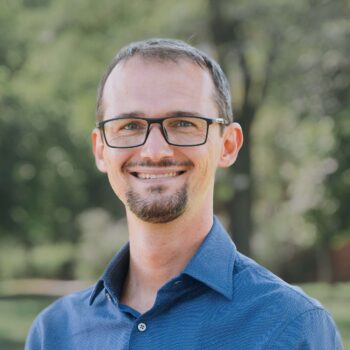
Bernd Müller, Ph.D.
Director | Historical Archives of Seventh-day Adventists in Europe
Telephone: +49 3921 916-155
Fax: +49 (0) 3921 916-120
Email:
Ahornstr. 3
39291 Möckern-Friedensau
Th.D. (USA)
Professor of Systematic Theology
Telephone: +49 (0) 511 640 93 63 | +49 (0) 179 754 08 13
Fax: +49 (0) 3921 916-201
Email:
An der Ihle 5 A
39291 Möckern-Friedensau
Research assistants
The following research assistants are currently working at the Institute: --
Former colleagues
- Daniel Heinz, Ph.D., Director, Archives of European Adventist History, Friedensau, until 2023 (retirement)
- Johannes Hartlapp, Dr. theol., Lecturer of Church History, ThH Friedensau, until 2025 (retirement)
Former colleagues
- Eudritch Jean, M.T.S., Volunteer/Research Assistant for the project Encyclopedia of Seventh-day Adventists, 10/2018–9/2019
- Kerstin Maiwald, M.A., Dr. phil., Researcher, Institute of Adventist Studies, 10/2017–5/2021
- Jón Stefánsson, M.A., Ph.D. (VU Amsterdam), Research Assistant for the project Encyclopedia of Seventh-day Adventists, 10/2018–12/2019
- Chigemezi Nnadozie Wogu, M.T.S., Ph.D. (VU Amsterdam), Researcher / project manager, Encyclopedia of Seventh-day Adventists, EUD and ESD regions, 10/2015–5/2020
Former student assistants
- Filip Kapusta, M.A., 2014–2018
- Philip Nern, M.A., 2018–2021
